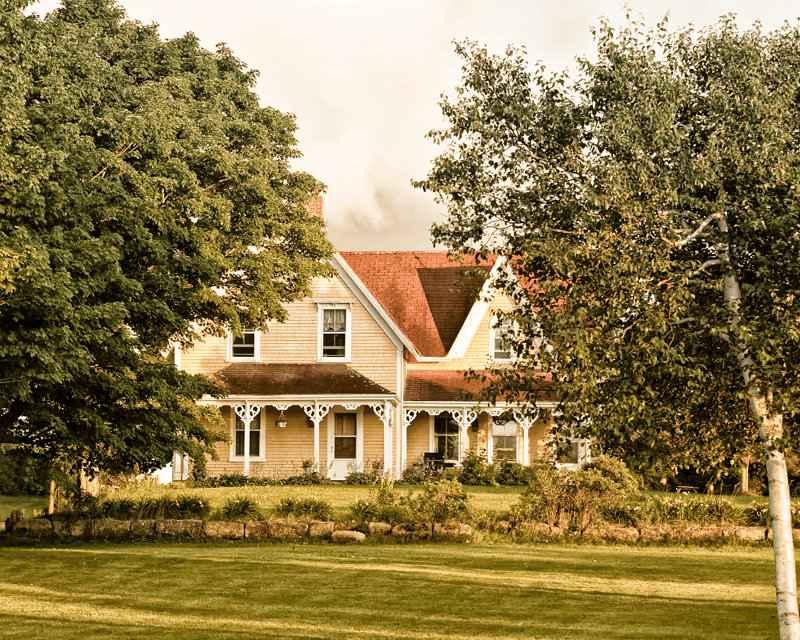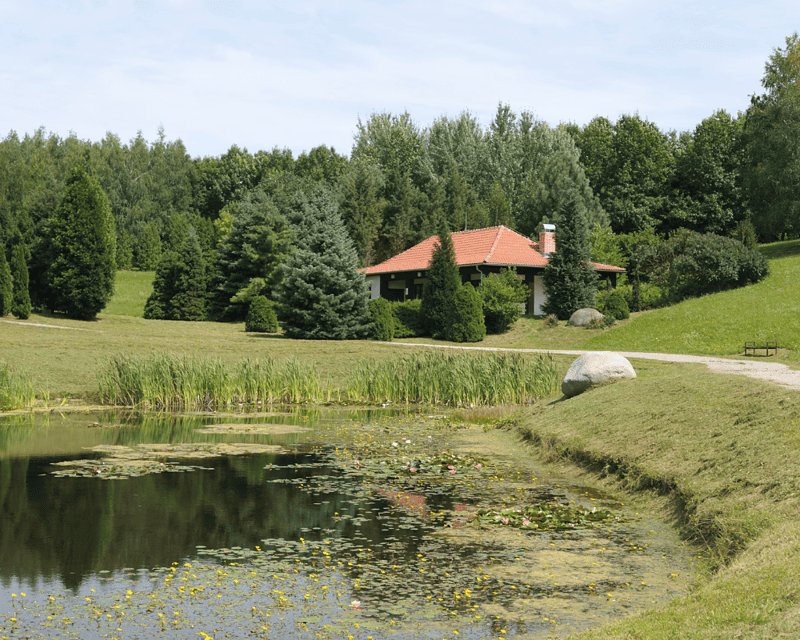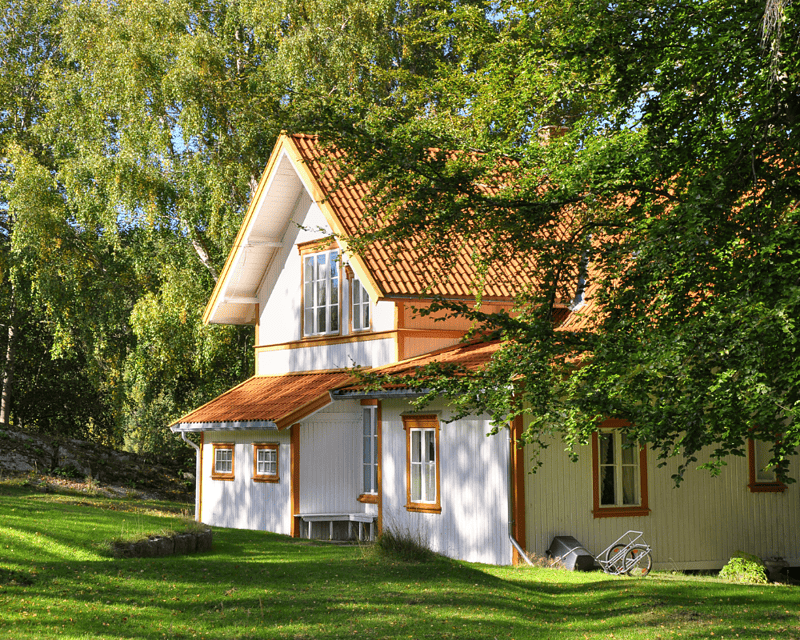If you’re considering investing in real estate in Canada, specifically a country house, you may be wondering if it’s worth the investment. After reading this article, you can hire a Toronto real estate lawyer to receive professional advice.
As a trusted firm dedicated to providing legal services in Toronto, Newmarket, and Barrie, the De Krupe Law team has the expertise to guide you through the legal aspects of real estate transactions. We understand the unique needs of our clients and aim to deliver practical and effective solutions while upholding the highest standards of professionalism.
The Appeal of Country Houses

Country houses offer a retreat from bustling city life, providing a serene and peaceful environment.
Escape from Urban Life
Owning a country house allows you to escape the noise and congestion of urban areas. You can enjoy the tranquillity of nature, fresh air, and wide-open spaces. It offers a much-needed respite from the fast-paced city life.
Privacy and Space
Country houses often come with larger lots, providing ample space and privacy. You can have a backyard where you can garden, relax, or host outdoor gatherings without being restricted by limited space.
Investment Potential
Investing in real estate has a well-established reputation for stability. Purchasing a country house in Canada presents the potential for long-term value growth. Furthermore, should you choose to rent out your property, it can serve as a source of passive income.
Recreational Activities
Country houses are often located near natural attractions such as lakes, mountains, and forests, offering numerous recreational opportunities.
You can indulge in activities like:
- Hiking;
- Fishing;
- Skiing;
- Boating.
All of the above depends on the location of your country house.
Core Factors to Consider

While there are undeniable advantages to owning a country house, it’s crucial to consider the following factors before making a decision. Investing in a country house is a significant financial commitment, and thorough consideration of these factors will help you make an informed choice that aligns with your needs and goals.
Financial Considerations
Purchasing a country house involves various financial aspects that should be carefully evaluated. Firstly, you need to assess your budget and determine how much you can afford to spend on a country house.
Consider not only the purchase price but also additional expenses such as property taxes, insurance, maintenance costs, and any renovations or repairs the house may require. It’s essential to have a clear understanding of your financial capacity to ensure that owning a country house fits within your overall financial plan.
Additionally, you should consider the potential return on investment. While real estate has historically been a sound investment, the value appreciation of country houses can vary depending on factors such as location, market conditions, and demand. Researching the market trends in the specific area where you are considering buying a country house can provide insight into the potential for future value appreciation.
Lifestyle and Personal Preferences
Another crucial factor to consider is how owning a country house aligns with your lifestyle and personal preferences.
Reflect on your reasons for wanting a country house.
Are you seeking a peaceful retreat away from the city?
Or maybe you enjoy outdoor activities — want a property that offers ample space for recreational pursuits?
Understanding your motivations will help you determine if owning a country house is the right choice for you.
Consider your long-term plans and how a country house fits into them.
Are you looking for a permanent residence or a vacation home?
Will you be using the property year-round or only during certain seasons?
Answering these questions will help you determine the type of country house that suits your needs, including factors such as size, location, and amenities.
Location and Accessibility
The location of a country house plays a significant role in its desirability, convenience, and potential for future growth. Consider the proximity to essential amenities such as grocery stores, healthcare facilities, schools, and recreational activities. If you plan to commute from your country house to work or other obligations, evaluate the distance and transportation options available.
Additionally, think about the accessibility of the property. Consider the condition of roads leading to the house, especially during inclement weather. Ensure that emergency services have easy access to the location, and consider the availability of utilities such as water, electricity, and internet connectivity.
Maintenance and Upkeep
Owning a country house requires more maintenance and upkeep compared to urban properties. Take into account the time, effort, and financial resources you are willing to dedicate to maintaining the property.
Country houses may have larger lots, which means more landscaping and outdoor maintenance tasks. Think about whether you have the skills or willingness to hire professionals for routine maintenance tasks such as lawn care, snow removal, and repairs.
Consider the age and condition of the house and its systems, such as plumbing, electrical, and heating. Older properties may require more frequent repairs and updates, which can add to the overall cost of ownership. Understanding the maintenance requirements and associated costs will help you plan and budget accordingly.
Environmental Factors

Country houses are often situated in natural environments, surrounded by trees, wildlife, and other natural features. While this can be a significant draw, it’s essential to consider the potential environmental factors that may impact your experience as a country house owner.
For example, if the property is located near a forested area, there may be a higher risk of wildfires. Understanding the local climate, weather patterns, and any environmental regulations or restrictions will help you make an informed decision. It’s also important to consider factors such as air quality, potential exposure to allergens or pests, and the overall suitability of the environment for your lifestyle and well-being.
By carefully considering these factors, you can make an informed decision about whether buying a country house aligns with your financial goals, lifestyle preferences, and long-term plans. Taking the time to evaluate these aspects will ensure that your investment in a country house brings you joy, relaxation, and a sense of fulfilment for years to come.
The Role of a Toronto Real Estate Lawyer
Purchasing a country house involves legal processes and contractual obligations. Working with a Toronto real estate lawyer can ensure a reliable and legally sound transaction.
A qualified lawyer can assist with the following:
- Title searches;
- Reviewing contracts;
- Negotiating terms.
His basic responsibility is to provide guidance throughout the buying process.
Conclusion
Buying a country house in Canada offers a host of advantages, including an escape from urban life, privacy, potential investment returns, and access to recreational activities. However, it’s essential to consider factors such as location, maintenance, commute, utilities, and weather conditions. By enlisting the services of a Toronto real estate lawyer, you can navigate the legal complexities associated with purchasing a country house and protect your investment.

